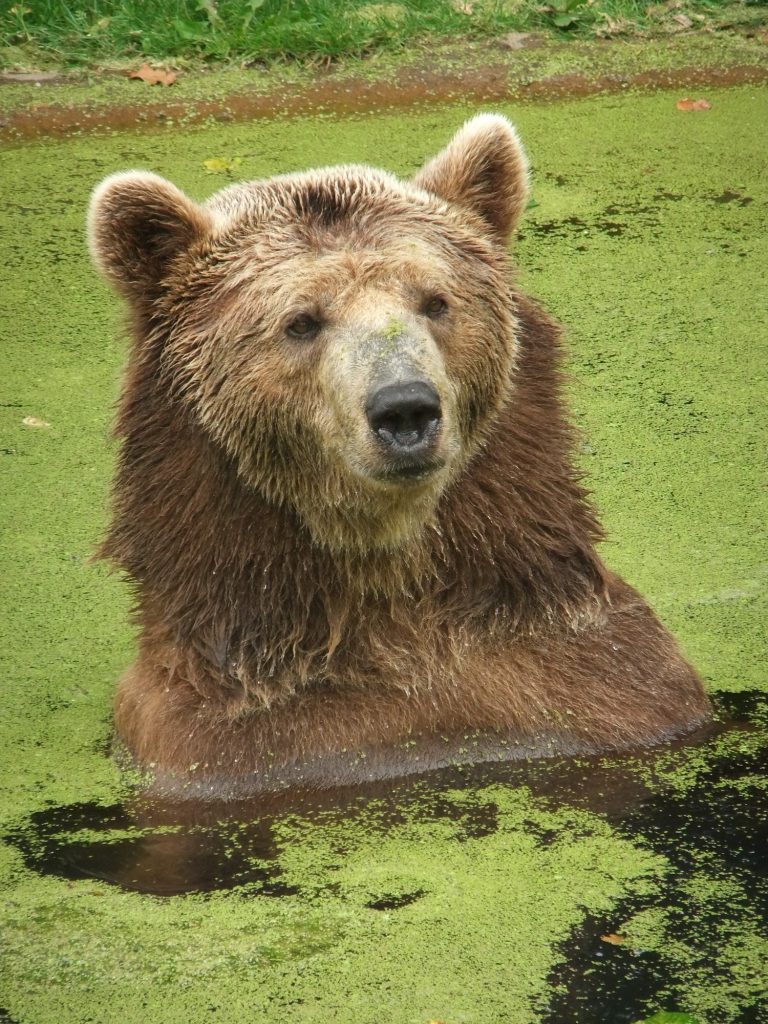If you follow this blog regularly, you will have read yesterday and the day before on the reasoning for reintroducing Lynx and Wolves.
As I wrote, Lynx should be a simple choice. I believe that Wolves follow a similar logical route, that suggests that the reintroduction would either save or make far more money that any negatives might cost.

Bears are also locally extinct in the UK, how does the arguments about reintroducing them go? Well, I would argue that actually the cost of bear reintroduction would be significantly lower.
Looking at Europe, Bears while on occasion becoming problematic, are on the whole animals that just quietly live out their lives. Significant amounts of money are made through bear tourism across Europe. Also, while in the past much of this income was generated by hunting, it has become increasingly clear that it is far more valuable to have a steady income that runs for years, rather than occasional hunter bringing in 10,000 euros every few years.
The price of bear watching varies from country to country, but can easily bring in a steady income of several hundred euros per night it is in use. In almost all instances, the food left is not huge – even where meat is left, it is likely to only generate enough food to be one stop on the bears night time wanderings. As a result it will not change their behaviour or indeed so long as the food is not associated with humans, it is also unlikely to change the way they relate to humans in the forest.
Bears are highly intelligent animals, with an intelligence similar to chimpanzees. as such their positive impacts cover a wide range of problems that can occur in British woodlands.
- Improve forest fertility: As a large animal, they have the ability to move their food – big or small, into parts of the forest far from where it is caught. How ever much they eat, much is often left. This is partly eaten by smaller animals, but also gives great amounts of nutrients to the soil. As a result, bears can prompt little pockets of increased forest health throughout their range.
- Seed dispersal: Bears roam great distances, and so are fantastic seed dispersers. Most seeds are pretty hardy and can pass through an animal digestive system unscathed. This means that bears can transfer seeds, often over great distances and will usually deposit them with a healthy portion of fertilizer – very helpful for forest regeneration
- Clean forest and maintain balance: bears have an incredible sense of smell, and so usually find animal carcasses quickly. From road kill to natural death, bears are able to deal with these bodies far faster than any of the current scavengers (foxes badgers pine martens and various birds). They are also highly efficient hunters, and while fresh meat tends to make up less of their diet than Wolves or Lynx, they help add to the climate of fear that changes animals behaviour for the better.
- Beautiful and fascinating to watch: there is a large market, worldwide for bear watching. In Roman times, the bears of the UK were recognized as some of the biggest in Europe. Furthermore, given their habit of often living in extremely remote places, they could greatly increase the income of remote communities around the UK. If handled carefully, there is little conflict between a bear hide and most forms of farming – allowing farmers to benefit financially from their presence. It should be noted, that while having less of an impact on deer, and therefore perhaps being less effective in controlling their numbers, bears have already been trialled in the UK.
In short, a bear reintroduction would be a positive step for the UK. It is true that bears can do damage, both in terms of livestock losses and damage to things like bee hives. However the positive impacts on the environment tend to largely out-weigh this. Large amounts of money and jobs could be created by their reintroduction, and costs should not be high. As with the other animals on this list, humans are responsible for the local extinction of the bear and so we should revers this injustice.











